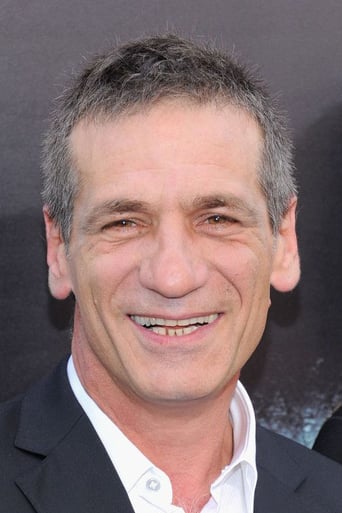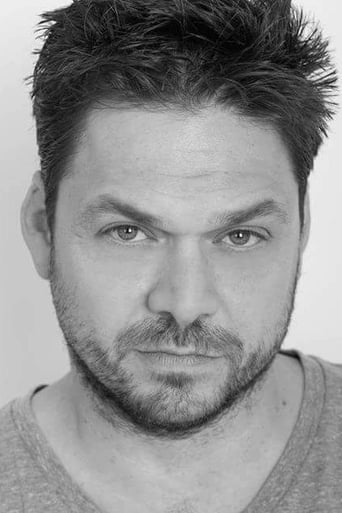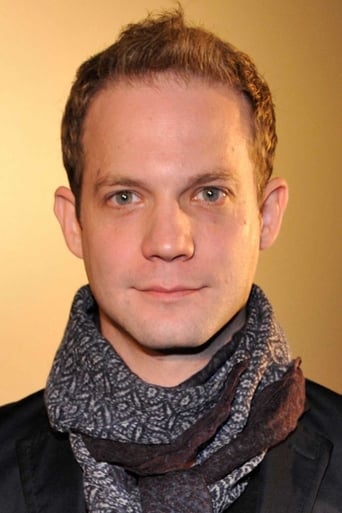FeistyUpper
If you don't like this, we can't be friends.
Beanbioca
As Good As It Gets
Sexyloutak
Absolutely the worst movie.
Invaderbank
The film creates a perfect balance between action and depth of basic needs, in the midst of an infertile atmosphere.
FilmFlaneur
Beaufort is that rarity among war films – one with the subject matter of retreat and a (at least implied) defeat of sorts. As such it falls in with such earlier and illustrious company as Ford's They Were Expendable (1945) - a generation and continent away perhaps, but which also showed the camaraderie that can develop at the anti-climactic close of a military campaign. Unlike Ford's work, with its unspoken certainty of eventual victory, director Joseph Cedar's Beaufort is a portrait of military inertia and inevitable pointlessness, at least as experienced by its small band of combatants. Conversely it's a million miles away from such films as Black Hawk Down where it's suggested gung ho bravery can some way appease for operational ineptitude and loss. If it's true that most history is written by the victors, then Cedar's film and its ilk ought to be treasured as offering a truer and more convincing alternative - even if, as in Beaufort's case, the results are criticised by local critics for being 'left wing' and 'defeatist'.Co-adapted for the screen by its author Ron Lesham, the film concerns a group of soldiers guarding a mountaintop in Lebanon shortly before the Israeli withdrawal in 2000. Beaufort Mountain is a place with particular historical significance, both as twelfth century crusader castle and a more recent, hard-won Israeli military capture - although it's quickly apparent that the value is more symbolic than strategic. Frequently shelled by the Hezbollah, guessing perhaps that the IDF is about to pull out, the outpost is isolated, the garrison depressed, with an unclear purpose.As the film starts, Beaufort's soldiers are joined by Ziv (Ohad Knoller), sent to investigate a new-style explosive device found on the road. During the opening scenes of the film there's some anticipation in subject matter of the recent Hurt Locker, but matters shortly take a different course after the first traumatic event. It turns out that the central character of Cedar's film is not the bomb expert but the introspective and honourable Commander Liraz (Oshri Cohen). A man who "can't believe someone gave him the job", whose increasing guilt and disillusionment at his responsibilities make up the core of the narrative.It has to be said that Beaufort is rather a glum film, shot in claustrophobic interiors, often at night. This may be an accurate representation of warfare under such circumstances but although Cedar, like Ford, admirably avoids sentimentality he fails to fill the space left with any real pathos and poetry, although showing successful empathy with his characters. Neither is there much, if any, black humour to provide contrast. When not on guard duty, or dodging incoming rockets, the soldiers are normally in their bunker-like environment – the corridors of which at times remind one of a spaceship without an alien - gloomily interacting with each other. The military installation on Mount Beaufort, largely empty and of questionable purpose, becomes a symbol of their whole mission, perhaps even more so than the plaque hanging there celebrating recent war dead. The camp stands in contrast to the remains of the original castle, visited at one point by several of the soldiers while in contemplative mood: the earlier construction had a far more distinguished point and still seems to be a source of strength.Where Beaufort scores is through its representation of a soldier's life when trapped between duty and political inertia, even though it's implied withdrawal from political engagement can be seen both as a strength and weakness. Instead of confrontation, it relies upon the unspoken rage of the morally dispossessed. In one telling scene, we see Ziv watching on TV an interview with the parent of one of his fallen comrades. The commander's slow tapping with a lighter on the table, an insistent accompaniment to the points being made on the small screen (that a parent's duty is to ensure his offspring are better aware of the value of life), is like a military tattoo for a friend's funeral cortege and though him, honour itself. Ziv, the loyal soldier, cannot overtly question his predicament, but the ironic beat over coverage of events inevitably offers commentary.Writer-director Cedar's previous two films Ha-Hesador (aka: Time of Favor, 2000) and Madurat Hashevet (aka: Campfire, 2004) both engaged with social and political aspects of the modern Jewish state, sometimes with controversial elements. In this latest one he provides another well-wrought and thoughtful piece, worth seeking out, even if it does not pretend to offer any answers. But perhaps that is the point: answers are always hard to find, let alone agree on, in such circumstances.
eldino33
This film is not technically a war movie, it is about soldiers at war and the effects of war on soldiers. In a way, it is the same type of movie as A WALK IN THE SUN, THE BEST YEARS OF OUR LIVES, and FULL METAL JACKET. It is not a movie about great wars, great battles or massive invasions, but one where there are long periods of inactivity punctuated with short periods of incomprehensible frenzy. The Left Elbow Index considers seven elements of film--acting, production sets, plot, character, character development, continuity, artistry, and dialogue--on a scale from a high of 10 to a low of 1, with an average movie rating a 5. It attempts to avoid emotional judgment based on the political elements of films such BEAUFORT, which like almost all Mideast films related to longstanding tensions tend to affect one's judgment of a film depending on which side of the conflict one finds oneself. The acting in this film looks reasonably good,it is measured, it is controlled, and the characters seem "real." The acting rates a 7. The production sets seem carefully constructed and authentic looking, there rating another 7. The plot seems average, a 5, with the main emphasis being on what will happen to the fort, and when. Another 5 for character development. The are some high points, but soldier's development can only go so far due to the implicit restraints of military service. Film continuity appears good, a 7, since the dramatic tone is constant. The use of high-tech equipment, the futility of war, and the eternal questions of war never leave the film. The artistry rate highest of all, an 8, due to the quality imagery and good cinematography. Also, Joseph Cedar's direction tends to focus directly on the main idea of each scene. In fact, in places, it causes the viewer to be as restless as the characters since one is unable to escape the tone of the moment. Dialogue is clever in spots, yet average overall--a 5. In a film where characters are ruled by a sense of duty, there is not much to say. The Left Elbow Index rating results in a 6.28, somewhat better than average. There are three concepts is this film which may drive you mad: duty has its price, our's not to question why, and military life amid changing orders. The film is well worth seeing, and I recommend it.
Robert_Woodward
Beaufort is an extraordinary portrayal of soldiers at war. This claustrophobic film charts the final days of the Israeli Defence Force's 18-year occupation of the Beaufort, a strategic hilltop fortress in southern Lebanon. Nearly all of the action takes place within the confines of this fortress (television is one of few windows onto the outside world). The soldiers in the Beaufort never once see the Hezbollah militants who are trying to kill them, but they face regular bombardments from enemy artillery. Director Joseph Cedar sets a slow and meditative pace and, though the film looks and feels very realistic from a military point of view, with unsettling explosions and startling sound effects, the emphasis is firmly on the human characters and relationships in this increasingly precarious outpost.At the beginning of the film, the arrival of the bomb disposal expert, Ziv, allows us to enter the world of the soldiers who inhabit the Beaufort. Their boredom and indifference is palpable, from the tired announcements of 'incoming, incoming' as mortar shells rain down, to the wry humour of the soldiers on night watch. There is a sense of disillusionment with the armed forces; of the futility of guarding an outpost won many years ago and now serving little strategic purpose. Ziv, the new arrival, confesses to Liraz, the squad leader, that he sought an assignment at the Beaufort in order to follow in the footsteps of his uncle, who fought during the capture of the fortress some 18 years previously. Through Ziv's fate and Liraz's meeting with Ziv's uncle we see how generations have fought one after the other and sacrificed themselves for hollow glories. The 12th-century Crusader fort that sits adjacent to the soldiers' compound is a telling reminder of the futile perpetuity of the Middle Eastern conflict.In the early stages of the film we see how close the soldiers are to one another. When one soldier announces that he is leaving, he receives hugs and congratulations from his fellows. However, when the first enemy missile hits the fortress it becomes clear that the enemy's strength is increasing and the film becomes much darker in tone. The soldiers grieve openly for their fallen comrades and those that survive are shaken and sometimes openly afraid. At the same time, they show quiet, grudging bravery in volunteering for the most dangerous jobs. The military response to the mounting casualties is a telling reflection of modern warfare. With enemy propaganda in mind, the IDF decides to minimise casualties by withdrawing from the Beaufort, but keeps the soldiers on tenterhooks by withholding information and delaying their departure.The ordinary soldiers occupying the fortress look forward to their escape and often talk of re-visiting the site one day as tourists. But Liraz, the squad leader, is a man apart. An intriguing and enigmatic character, he is, in the words of one of his men, 'a man who can't believe they gave him the job.' He is oddly attached to the Beaufort in a way quite unlike his men and he struggles to imagine a life after it – indeed there are few hints of any life for him outside the fortress. He shows remarkable bravery and compassion for his men in the last days of the occupation, but he has his limits and is thus something of an outsider and a disappointment in their eyes. In one of the strongest scenes, Liraz orders Shpitzer, a budding musician, to play a song for the other soldiers; this provides catharsis for them as they grieve a fallen comrade, but Liraz assumes an oddly distant look. Oshri Cohen deserves great credit for his performance as Liraz: it is the foremost amongst many fine performances in this film.A special mention must also go to Ishai Adar's soundtrack, one of the most effective that I have heard in a long time. The music subtly adds emotional weight to the film and creates tension by building up slowly and dropping away at the right moments.
vostf
Beaufort doesn't pretend to cater for all audiences, right. It only aims to be a rendition of how the soldiers lived (and occasionally died) in the Beaufort outpost during the final days of the 18-year Israeli presence there. I reckon this rendition is really good: dialog, characters, actors, settings, photography.Yet the movie is totally uninteresting: doesn't provide insight on the conflict, on human nature... on anything with a larger scope than Israeli soldiers on duty there and then. You know, soldiers have to be very special characters or to do something really special, else they are only public servants working their shift until it's time to come home. Maybe people in Israel will like Beaufort because it speaks of themselves and for themselves but universally speaking it is a very anecdotal movie, thus almost entirely uninteresting.




